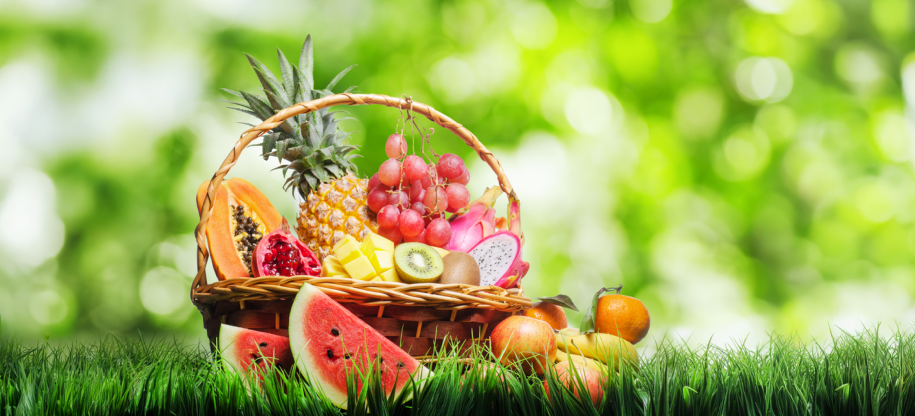Irritable Bowel Syndrome (IBS) is a common gastrointestinal issue in India, impacting around 4% to 7% of the population. A major factor contributing to IBS symptoms is the intake of high FODMAP (Fermentable Oligosaccharides, Disaccharides, Monosaccharides, and Polyols) foods, which are not easily absorbed in the intestines and can cause digestive discomfort.
In India, where fruits are a key part of the diet, choosing low FODMAP options can significantly help in managing IBS symptoms.
List of Top 10 Low-FODMAP Fruits to Have in IBS
Here are the top 10 low FODMAP fruits that you can enjoy without concern:
- Bananas (Firm and Ripe): Bananas are readily available throughout India and make for a convenient snack. It's best to eat them when they are firm and ripe, as unripe bananas have higher levels of resistant starch, which can be troublesome for those with IBS.
- Papaya: Renowned for its digestive enzymes, papaya is gentle on the stomach and supports digestion. It's a common fruit in Indian homes and can be eaten on its own or added to salads.
- Pineapple: This tropical delight is not only tasty but also low in FODMAPs. You can enjoy moderate portions of pineapple in your diet without aggravating IBS symptoms.
- Kiwi: Packed with vitamin C and dietary fiber, kiwi is known to help with bowel movements, making it a good choice for individuals with constipation-predominant IBS.
- Dragon Fruit (Pitaya): Growing in popularity in Indian markets, dragon fruit is low in FODMAPs and provides various nutrients, including antioxidants and fibre.
- Clementine: A variety of mandarin oranges, clementines are small, easy to peel, and low in FODMAPs. They are a convenient and safe fruit option for those with IBS.
- Strawberries: Although not originally from India, strawberries are now widely available in many regions. They are low in FODMAPs and can be enjoyed fresh or blended into smoothies.
- Blueberries: Another berry that is low in FODMAPs, blueberries can be found in select markets and can be consumed in moderation. They are rich in antioxidants and add a burst of flavor to your meals.
- Passion Fruit: This exotic fruit is low in FODMAPs and can be enjoyed fresh. It’s celebrated for its distinct flavor and health benefits.
- Ripe Guava (Without Seeds): Guava is a popular fruit in India. When eaten ripe and seedless, it is low in FODMAPs and can be part of your diet.
Tips for Incorporating Low FODMAP Fruits in IBS Diet
- Moderation is Key: Even fruits that are low in FODMAPs can trigger symptoms if eaten in excess. It’s wise to start with small servings and see how your body responds.
- Avoid Fruit Salads with High FODMAP Fruits: When making fruit salads, be sure to leave out high FODMAP fruits like apples, mangoes, and watermelons, which are often found in India.
- Be Cautious with Dried Fruits: Dried fruits can have concentrated sugars and may be high in FODMAPs. Fresh fruits are the better choice.
- Consult a Dietitian: Since everyone’s tolerance levels differ, speaking with a dietitian who understands the [low FODMAP diet])https://dailybloomibs.com/blogs/transition-to-fodmap) can offer tailored advice.
Conclusion
By making thoughtful dietary choices and including these low-FODMAP fruits, individuals with IBS in India can enjoy a diverse and nutritious diet while effectively managing their symptoms.
Dr. Pranav Shukla
MBBS, MD Anaesthesia
Disclaimer: This communication does not substitute advice of a medical/healthcare practitioner. Please consult your doctor/healthcare professional for any medical/healthcare advice. Although greatest possible care has been taken in preparation of this response, Dr. Reddy's shall not be liable to any person for contents of the same. Images appearing herein are for illustration purposes only.

